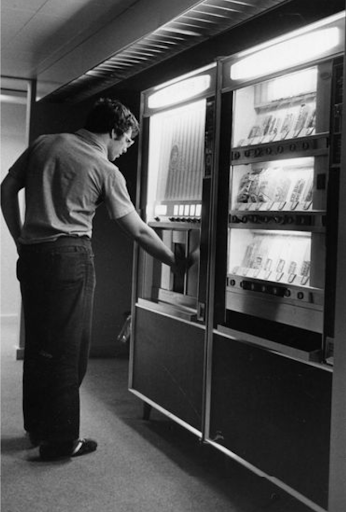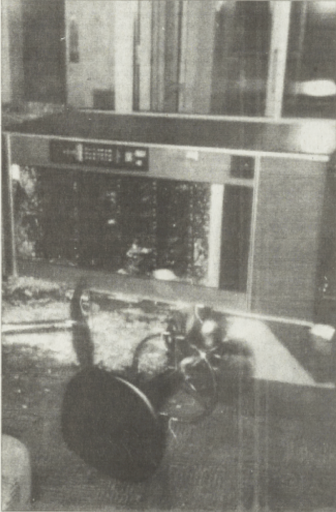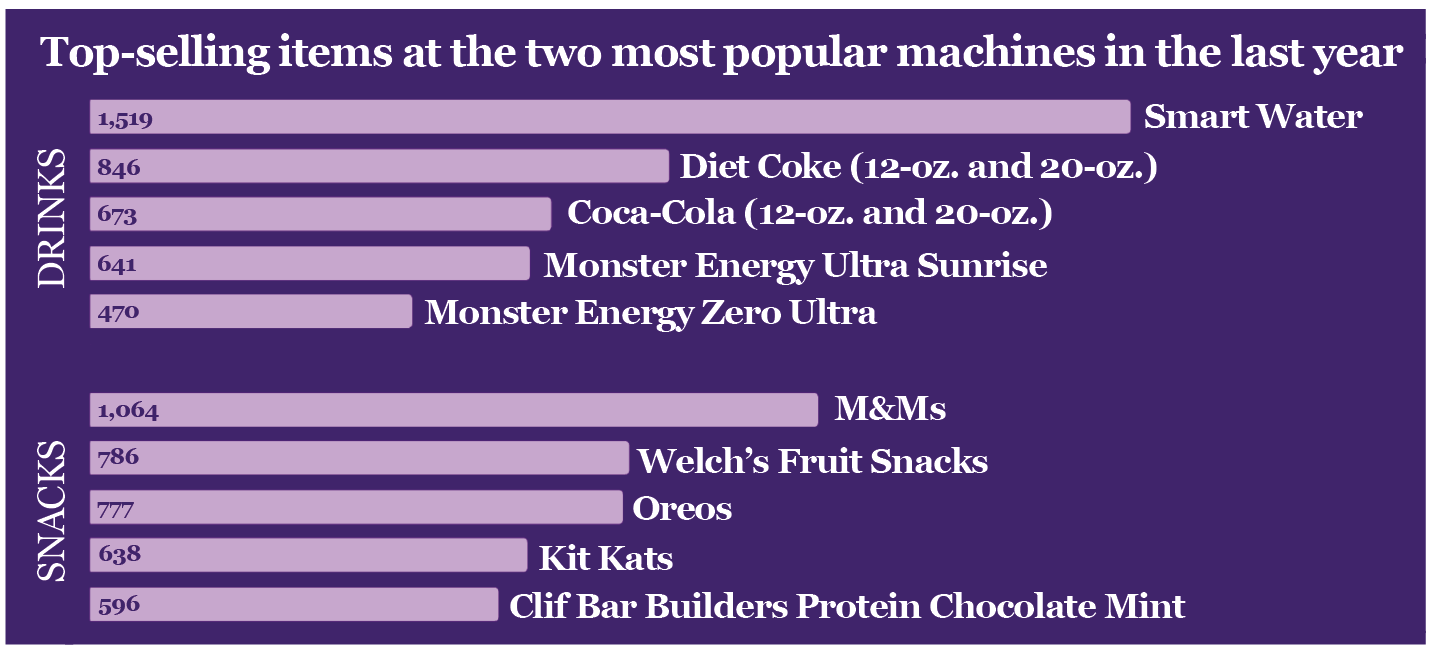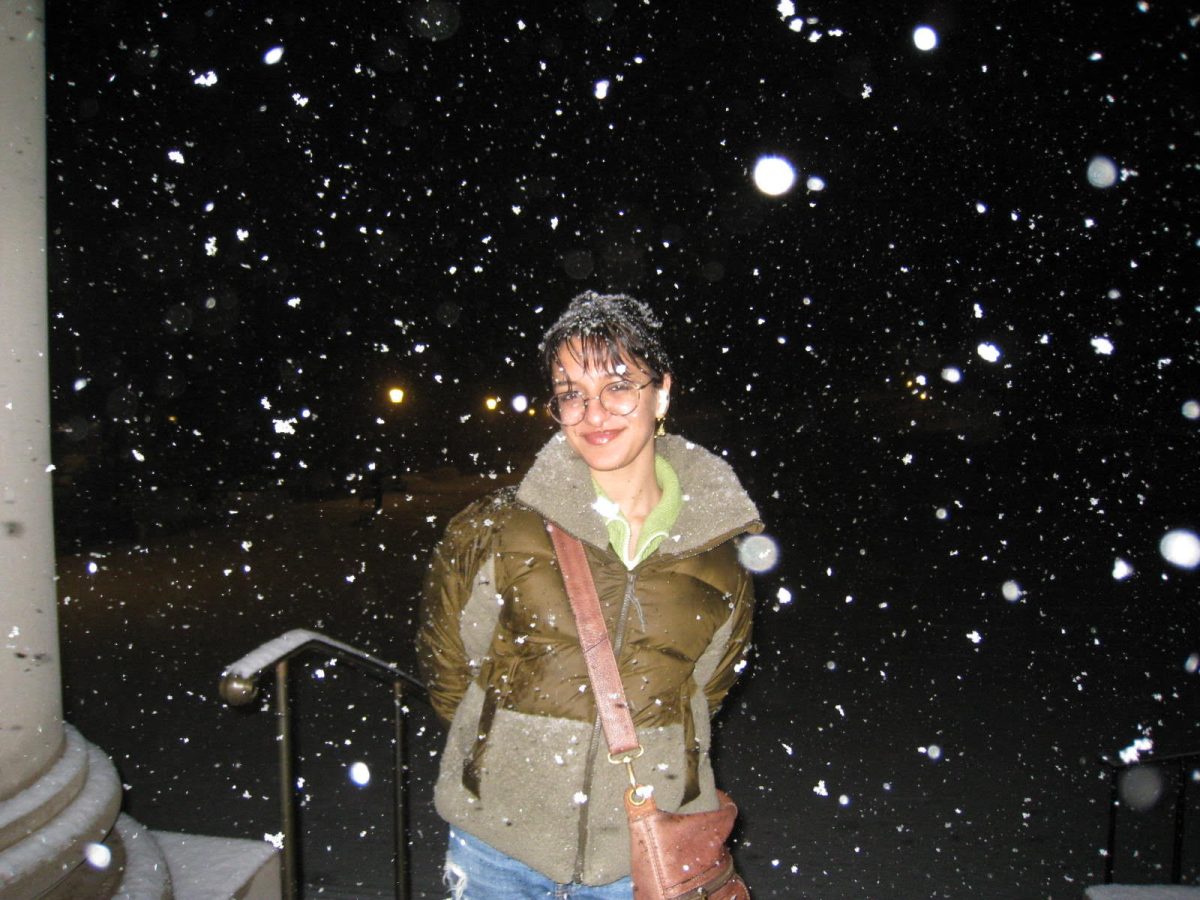It’s 1:15 a.m. on a Saturday. Late night dining has officially closed its doors, the establishments on Spring Street have been dead for hours, and the minifridge in your dorm is so empty that cobwebs have started to form on its shelves. In desperate moments like these, there’s only one solution to fill the pit in your stomach: the trusty vending machines.
Some scholars date the nifty, goodie-dispensing device to as early as the first century — then a primitive box with a slot at the top, where individuals would insert a coin that would hit a lever, dispensing a desired drink (it was even used to distribute Holy Water in temples). At the College, however, the earliest record of the machines is from 1939, when the Record reported that the newly opened faculty house, which was “remarkable for its completeness of equipment,” included a vending machine. But rather than soft drinks, crunchy snacks, or even Holy Water, the building’s vending machine dispensed cigarettes.
However, soon after a 1964 report by the United States Surgeon General linked smoking to lung cancer, the College stopped maintaining cigarette machines on campus. Today, the College’s 20 vending machines sell a variety of bottled and canned sodas, bags of chips, and even mini charcuterie boards.

While the machines may look unassuming, they’re a part of a network of over 15,000 machines operated by Prestige Services, a $200 million company that runs vending machines throughout Massachusetts, New York, Vermont, and Maine. John Potenza, an account manager for Prestige Services, told the Record that the business, which started in 1996, earns about $2 million in revenue every year.
Included in that cash flow are over 100 college and university campuses throughout the New England area where Prestige Services operates, including Northeastern, Boston College, Boston University, University of Vermont, and the University of Albany.
“If there’s a college and it’s in Massachusetts or Vermont, we’re in it,” Potenza said.
But Williams, according to Potenza, is a prized college on the list. “It’s like an Ivy League school — top notch and very classy,” he said. “Williams is a very big and prestigious account of ours.”
But more has changed about the College’s vending machines in the last century than just the items for sale. Today, Potenza said, many machines in the Prestige Services fleet only take cards — credit, debit, or college ID.
“There’s no cash involved,” he said. “There’s nothing to steal.”
And Potenza’s concern is real. The College is no stranger to vending machine vandalism: In January 2005, unknown perpetrators smashed the glass of a vending machine in the basement of Prospect House, looting almost all of the candy and snacks inside. The same machine was broken into again in January 2007 and once more just three months later.

In order to get a sense of the most popular snacks and beverages at the College, Rob Spephan, vice president of sales at Prestige Services, provided data from the last year about the most popular snacks and beverages at the two most frequented vending machines on campus.
At the beverage machine in Schow Library over the last year, Smart Water took the top prize with 1,519 sales, Diet Coke (both 12-ounce cans and 20-ounce bottles) nabbed silver with 846, and Coke (again, both cans and bottles) was third with 673.
Last year, the snack machine in the Paresky Center sold 1,064 plain M&M packs, 786 Welch’s fruit snacks, and 777 Oreo sleeves to round out its top three.

Prestige Services, Potenza said, collects this data through an antenna on the top of each vending machine, which sends a signal to the company’s headquarters in Clifton Park, N.Y., twice a day to report the number of sales for each item. Using this information, a Prestige Services employee drives one of the company’s white trucks — emblazoned with its retro logo — from a company warehouse to the vending machine in question to restock the snack.








